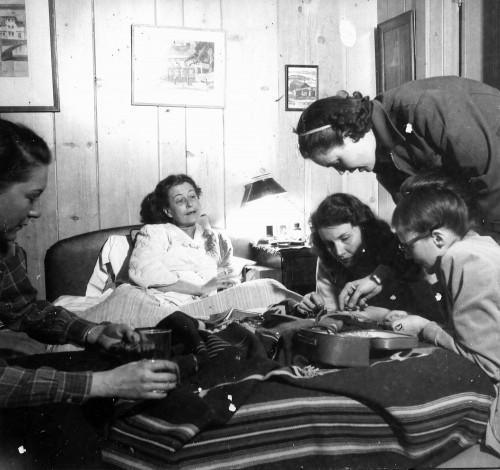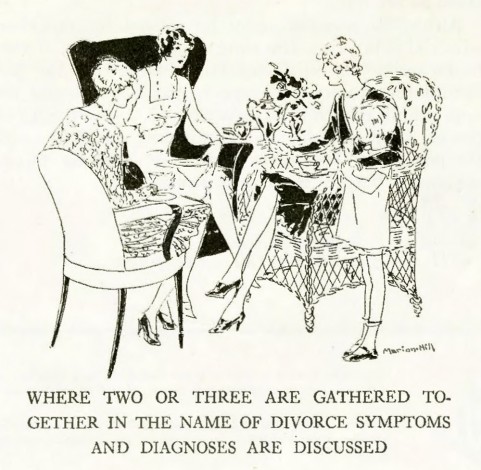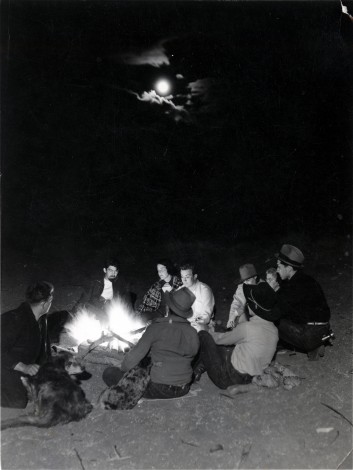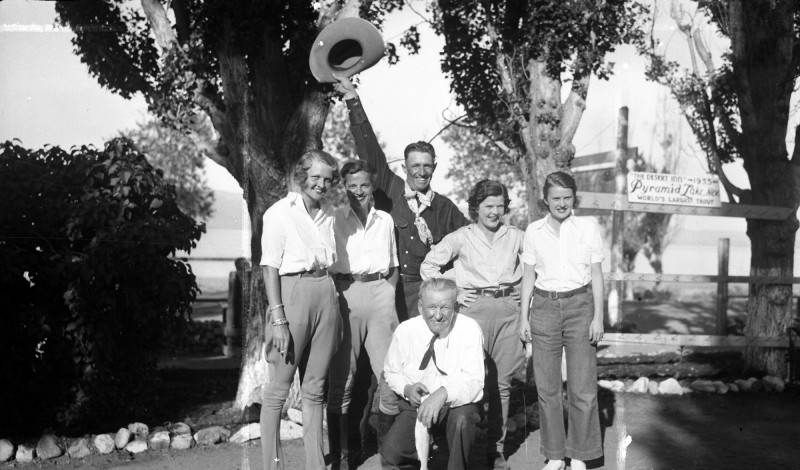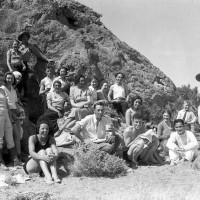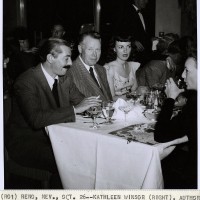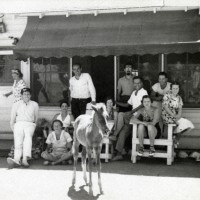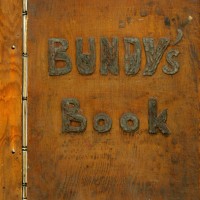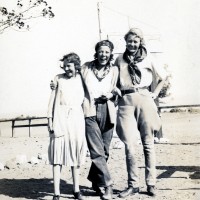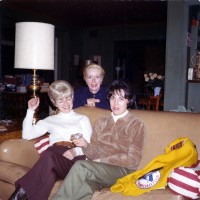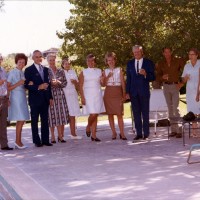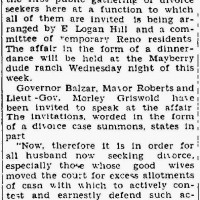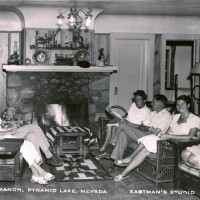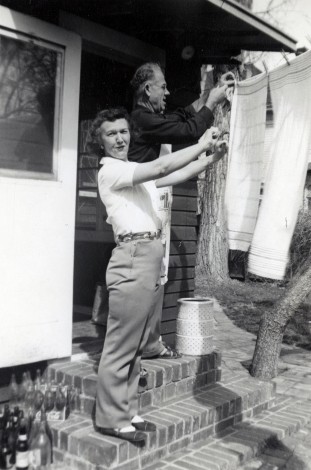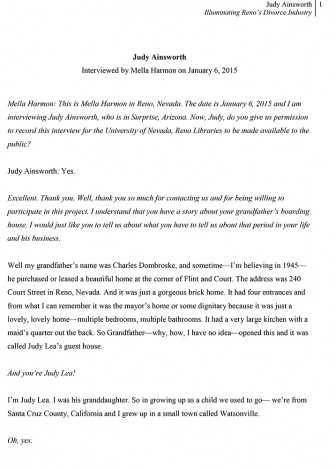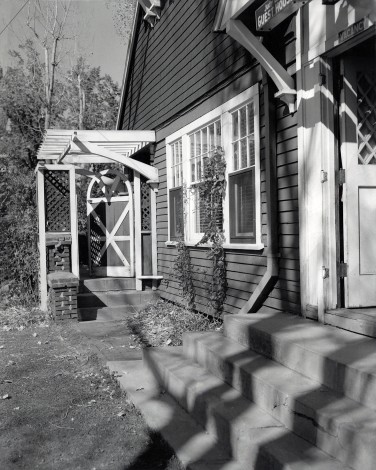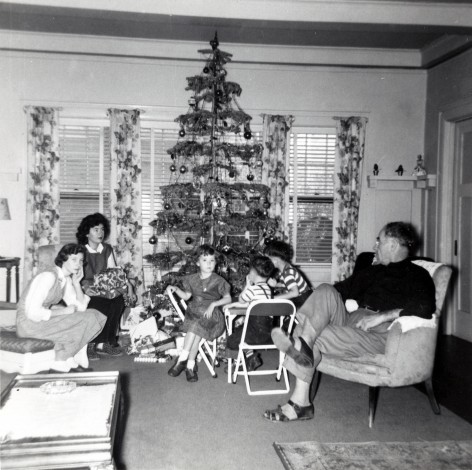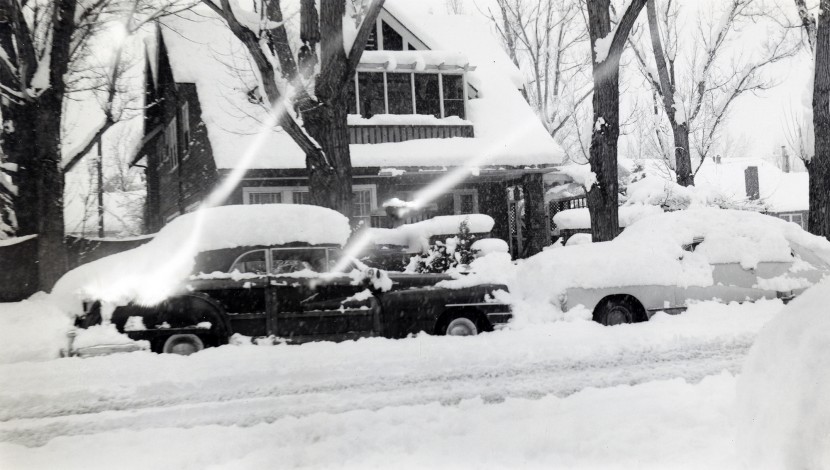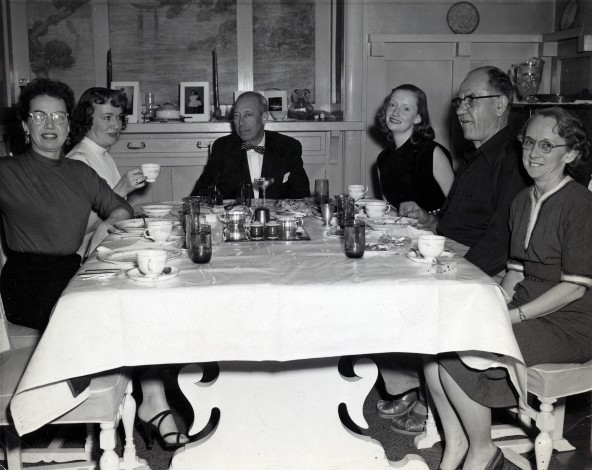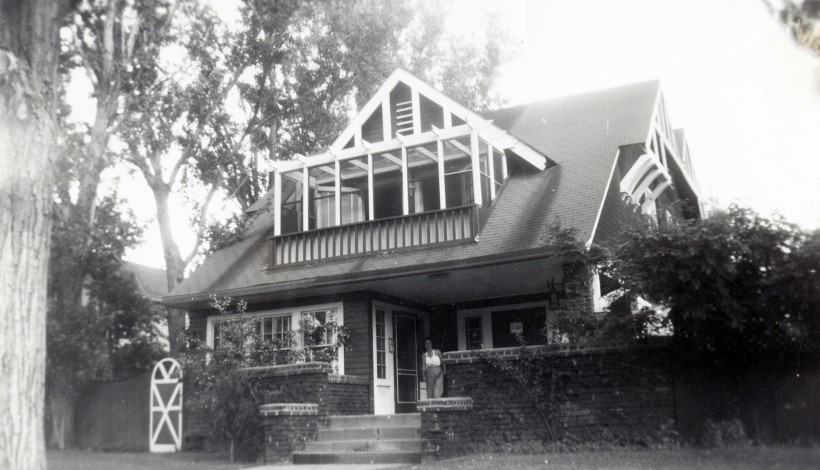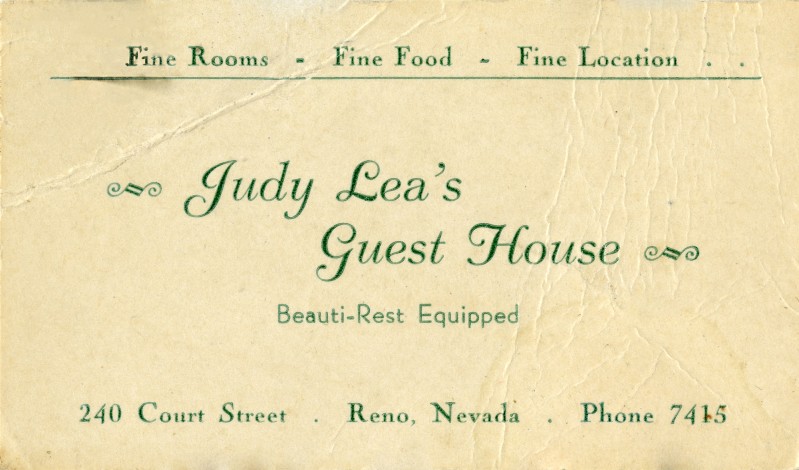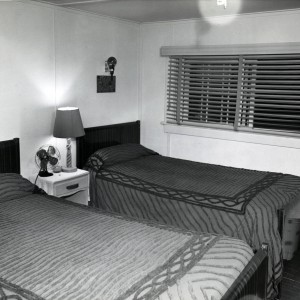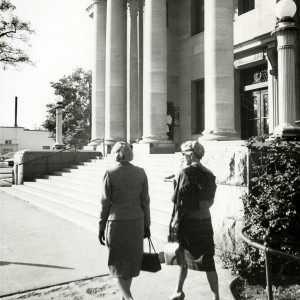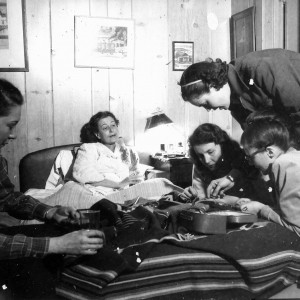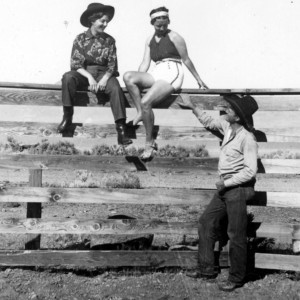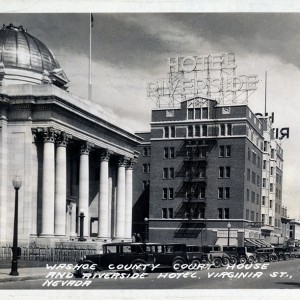In Reno’s divorce colony, people whose paths might never otherwise have crossed were thrown together by their unique circumstances. The majority of divorce-seekers lived in some sort of shared housing situation where, at the very least, they took meals and participated in a range of activities with new acquaintances in Reno for “the usual purpose.”
Whether sharing a room in a boardinghouse with a young woman from Iowa, or enjoying a private suite at the Riverside Hotel, divorce-seekers would interact and develop relationships with others in the colony as well as with local people whose job it was to accommodate their needs. Many were both surprised and relieved to find themselves in an environment where their marital situation was met with such a high degree of acceptance and understanding.
Some enterprising individuals strove to enhance a sense of community among members of the colony by organizing events specifically for them. In the 1930s, “colony club dances” beckoned the “divorcees and divorcons” of Reno with special celebrity guests.
Of course, with residency periods overlapping, the experience of the divorce-seeker was characterized by a constant stream of arrivals and departures. Newly formed friendships were often cut short by the advent of a court date and, usually, a return home. Sometimes, however, divorce-seekers felt such a strong connection to their temporary community and its inhabitants that they decided to make their residence—and sometimes their romances—permanent.
Featured Resources
The Judy Lea Guest House
Private homes courting the divorce trade included the Judy Lea Guest House, an attractive brick residence once located as 240 Court Street. Guest houses, common throughout the city of Reno, provided their owners with economic benefits, and their guests with the comfort and the camaraderie of roommates going through the same emotional upheaval.
The Judy Lea Guest House was owned and operated by Charles Dombroske. It was named for Charles’s granddaughter Judy, who spent many summers and Christmas vacations with her grandfather and the divorce-seekers living there. To free up the bedrooms for his tenants, Charles slept on a small bed in the dining room.
The occupants of the Judy Lea Guest House had shared use of the kitchen and they would often prepare meals for each other. They also spent time relaxing on the house’s front porch and protected, tree-lined backyard.
The Judy Lea Guest House was demolished in the 1970s to make way for construction of the local Boy Scout headquarters, a building that was converted into the Great Basin Community Food Co-Op in 2012.
